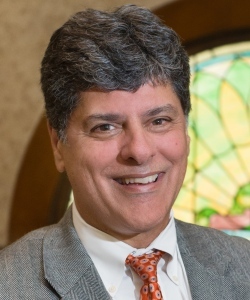We recently closed an estate that had an issue surrounding the enforceability of a lien in favor of the State of Connecticut for Medicaid payments that were made on behalf of the decedent. The decedent spent her last days in a nursing home. Before she died, she applied for Medicaid to absorb the cost of her stay in the nursing home. The Connecticut Department of Social Services approved her Medicaid application and paid her nursing home expenses. She died owning nothing.
Sometime after her death, her eldest son told us that he received a letter from an attorney in another state telling him that his deceased mother’s brother died leaving a modest estate. The letter indicated that his uncle died before his mother and the only beneficiaries of the uncle’s estate were his surviving siblings. That meant that his mother’s estate stood to inherit from his uncle’s estate.
Would the State of Connecticut make a claim for medical assistance paid to his mother? The beneficiaries of his mother’s estate were the eldest son and his two younger brothers. The youngest brother was developmentally disabled and living in a group home in another state. The state provided public benefits for his care.
Federal law says that any adjustment or recovery of any medical assistance correctly paid on behalf of an individual by a state may be made only at a time when the individual has no surviving child who is under age 21 or who is blind or permanently and totally disabled. In addition, the Connecticut Department of Social Services Uniform Policy Manual (hereinafter “UPM”) states that “[t]he Department recovers funds for Medicaid benefits correctly paid from the estate of an institutionalized individual regardless of the individual’s age … [and] [r]ecovery is only … if the individual has no surviving child who is under age 21 or who is either blind or disabled.”
We opened his mother’s estate in the probate court. During the estate administration process, the State of Connecticut – through its collection arm, the Department of Administrative Services (hereinafter “DAS”) – filed a claim asking the court to order that the money that the mother received from her late brother, be distributed to the State of Connecticut. The lien was in the approximate amount of $176,000.00! Near the end of the estate administration process, we submitted a Financial Report in which we asked the court to deny the State’s claim pursuant to the federal statute and the Connecticut UPM. We also provided the probate court with a copy of the youngest brother’s medical record to substantiate his developmental disability.
After DAS reviewed the law and the medical records, they withdrew their claim for reimbursement of the $176,000.00. Thereafter, the court approved the Financial Report and ordered the distribution of the mother’s estate to her three sons. As you can imagine, our client was very happy with the outcome.
Every estate requires a deep analysis of the facts and the law because no two estates are alike. If the Connecticut Department of Administrative Services makes a claim in an estate in which you are the Executor - or a beneficiary - seek an experienced probate lawyer who will do a thorough analysis of the claim. Do not assume that the State will recover estate assets in every case. The money you spend to determine whether you may prevail against the State could be well worth the inheritance you ultimately receive. Please don’t hesitate to call the probate attorneys at Cipparone & Zaccaro, PC. We’d be happy to discuss your unique situation and help you determine whether you might inherit from a loved one’s estate.

